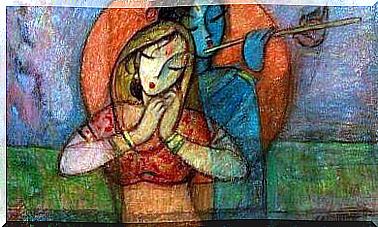There Are No Toxic People, Only Toxic Behaviors

The idea of ”toxic people” has become quite widespread. People actually apply the adjective “toxic” to anyone who has problems with connection to other people. However, this only causes intolerance to flourish. It’s time to clarify that “toxic people” do not really exist. What does exist, however, are toxic behaviors.
No human being should be reduced to a general classification, as “good” or “evil”. We should also never put labels such as “toxic” on a person. People change all the time, just like life. We all have moments when we let bad or destructive behaviors take over.
We may be stuck in these moments for a long time; however, this does not mean that we are innately toxic. No one is toxic, and we should not use that word to describe a person’s essence.
Everyone can exhibit toxic behaviors, but that does not mean that they should be treated in line with their entire lives. You can redirect your behavior and make it something positive.
In any case, there is nothing to avoid like the plague. What this means is that you (or another person) have problems. As a result, you are not aware of the harm you are doing to yourself and others.
Toxic behaviors hide insecurity and low self-esteem. At the same time, it exhibits narcissistic traits that compensate for the lack of self-love. Furthermore, it tends to go hand in hand with erroneous beliefs. These beliefs offer a false sense of justification for the behavior.

The main characteristics of toxic behaviors:
- A desire for control: the individual feels a strong need to control the people he loves. He wants to know everything about them. This also shows up as a permanent interest in getting involved in or influencing the ways they act or are.
- Use of emotional manipulation: Toxic behaviors often involve blackmail. The individual uses this to get the other person to do what she wants.
- Blaming other people: toxic verbal behavior points out the faults and shortcomings of others. A person who behaves in a toxic way tries to avoid individual responsibility and instead blames others.
- Hides jealousy and envy: toxic behavior is when someone can not be happy on behalf of others. Other people’s independence and achievements are seen as a threat.
One cannot see toxic behaviors in general terms that are applicable to anyone who exhibits the above-mentioned characteristics. There are always degrees, levels and contexts.
Sometimes toxic behaviors are so deeply rooted that the only thing you can do is distance yourself. But that does not mean that you should isolate the person. The important thing is to make him understand that the reason you distance yourself is his destructive behavior.
There will always be conflicts in your relationships. It is possible to find balance, but nothing happens naturally. Generally, you will go through ups and downs before that.
Everyone brings baggage into relationships: emptiness, separations and contradictions. It is not logical to try to avoid all this. All you can do is manage and balance it.

Dialogue will always be the best way to find common ground. When you are not engaging in toxic behaviors, you have the ability to see them in others. You can also restrict attempts to control and manipulate. If you allow them, enable them, tolerate them or silence them, it means that you follow the same destructive logic.
The best way to help someone who is engaging in toxic behavior is to not allow it. All relationships have rules, implicit and explicit. You should never tolerate manipulation, contempt or other behaviors that depress or exploit you.
Finally, remember that we are trying to eliminate toxic behaviors, not “toxic people”.









